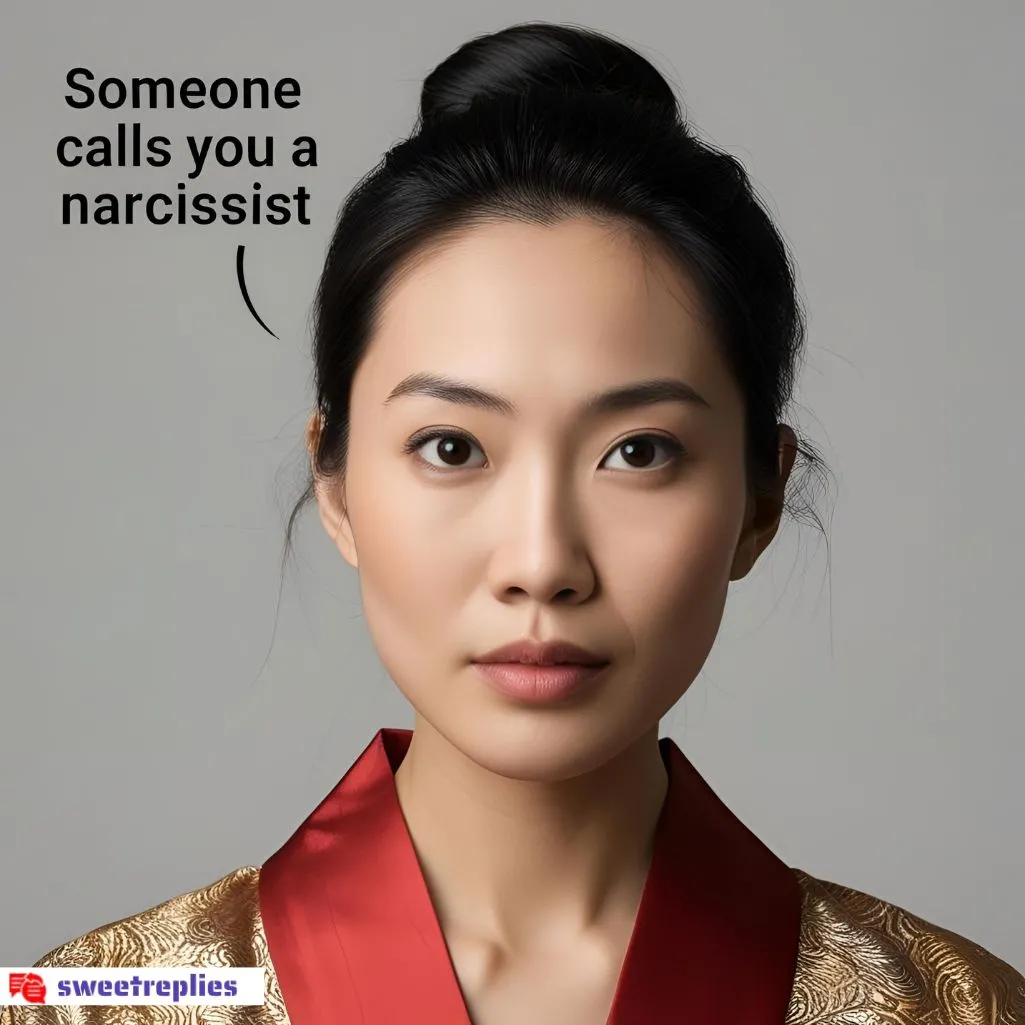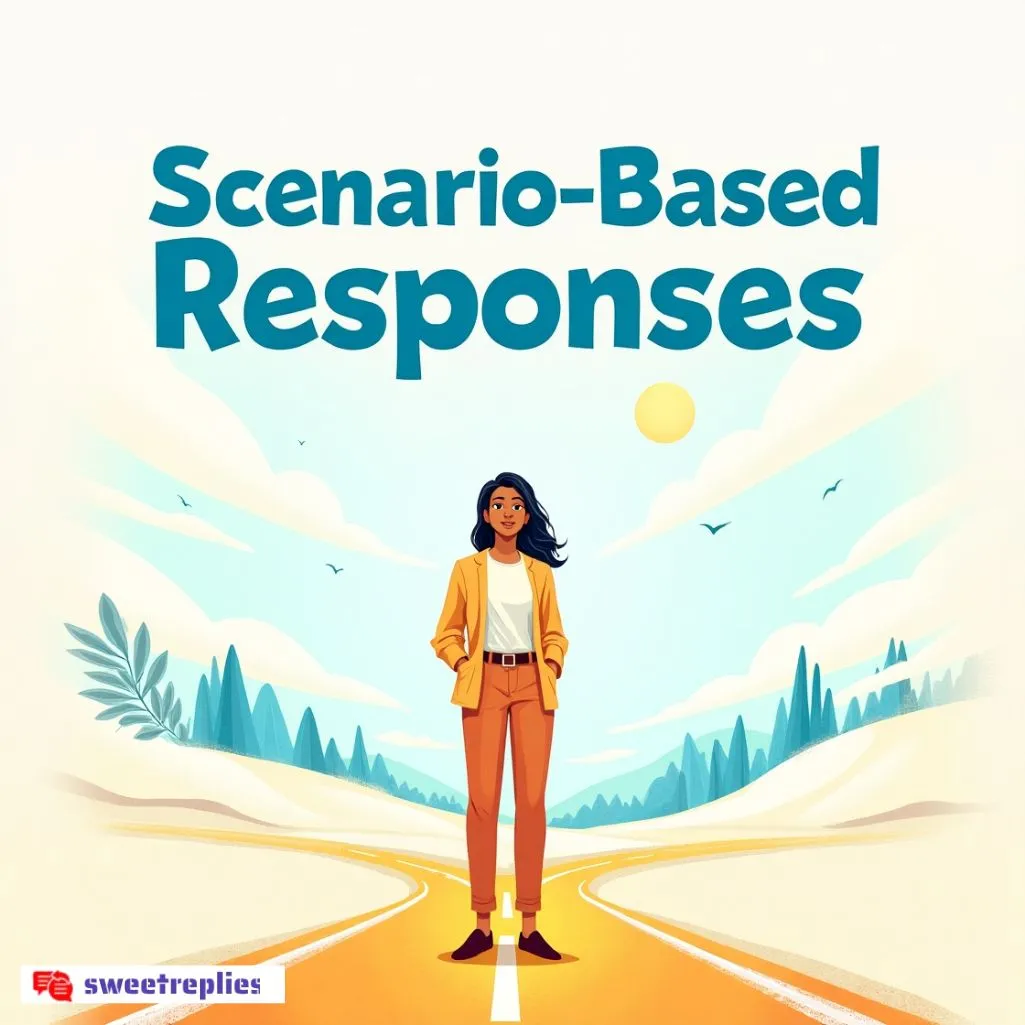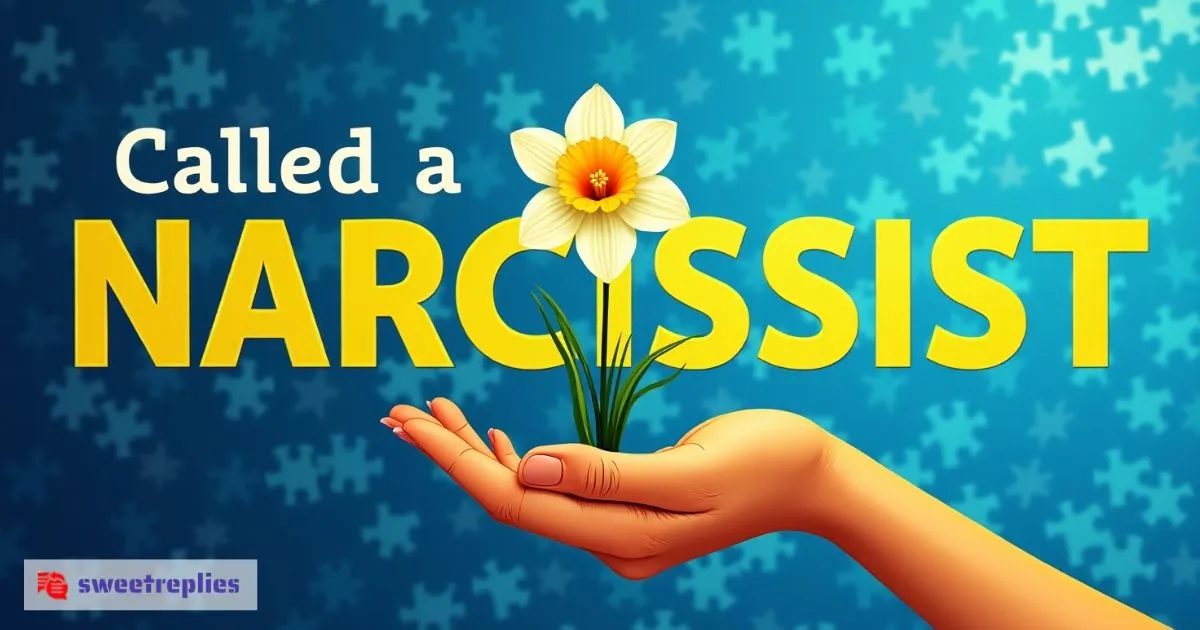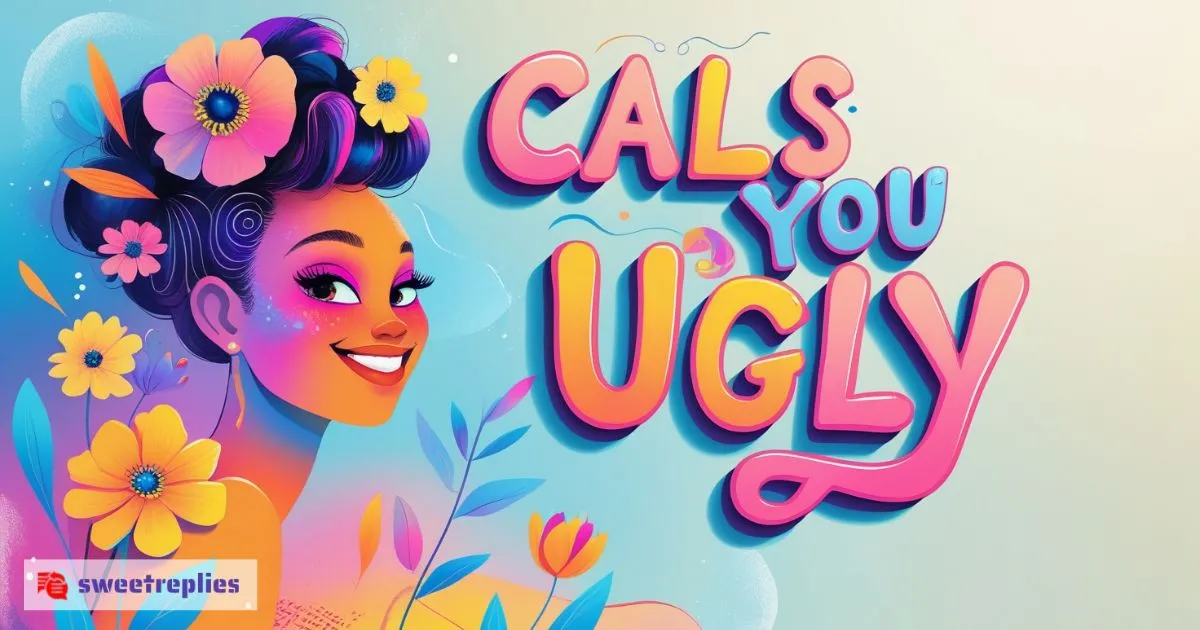Have you ever been called a narcissist? It’s a hurtful insult that can leave anyone confused, especially when it feels like the term is thrown around so easily in today’s world of pop psychology.
But here’s the thing: narcissist is one of the most misused terms out there. Many of us are quick to throw around labels like selfishness, entitlement, or even grandiosity, without understanding the clinical definition or the deeper implications.
In this blog, we’ll help you navigate through the confusion with sharp responses and practical tips for handling accusations gracefully. We’ll also explore the psychology behind these insults and how to reflect with empathy.
When it’s a working relationship or a close friendship, this guide will show you how to respond calmly, without falling into the trap of projection or lies. Ready for a course of action? Let’s solve the issue, reflect, and refute those unfair judgments with respect!
How to Respond When Someone Calls You a Narcissist?
When someone calls you a toxic, take a deep breath and resist the urge to react impulsively. Instead of getting defensive, calmly ask them to explain what they mean, as the term is often misunderstood or misused.
This approach not only helps you avoid unnecessary conflict but also shows that you’re willing to engage in a more meaningful conversation.
Also Read: Hilarious Quotes That’ll Totally Annoy a Narcissist!
How to Respond When Someone Calls You a Narcissist?
1. Stay Calm
When someone accuses you of being a toxic, it’s crucial to stay calm and composed. Reacting emotionally can escalate the situation and make it harder to have a rational conversation. Take a moment to breathe, ground yourself, and focus on handling the situation with poise.
2. Ask for Clarification
It’s important to ask for clarification when someone calls you a toxic. This gives them the chance to explain their viewpoint, which might reveal that they are simply misunderstanding your actions. By asking, you also show that you’re open to dialogue and not just shutting down the conversation.
3. Stay Confident
Stay confident in your sense of self when faced with such accusations. Narcissism is often a misunderstood label, and you can confidently explain your actions without being defensive. A steady, composed response will help others see that you are not shaken by such remarks.
4. Deflect with Humor
If the situation allows, deflect with humor to lighten the mood. A well-timed joke can help de-escalate tension and show that you’re not taking the accusation too seriously. Humor can also help shift the focus away from the insult and back to the conversation in a more positive direction.
5. Consider the Source
Consider the source of the accusation before responding. Often, people who accuse others of narcissism may be projecting their own insecurities or frustrations. Reflect on their motivations and when their opinion truly matters in your life, as it can help guide your reaction.
6. Take a Deep Breath
Before reacting, take a deep breath and give yourself time to think. Knee-jerk reactions often lead to regret, and taking a moment to pause will help you approach the situation with a clear, calm mind. This pause gives you control over your response instead of letting emotions dictate it.
7. Focus on Solutions
Instead of getting caught up in defending yourself, focus on solutions. Redirect the conversation toward finding common ground or addressing the underlying issue. By shifting the focus from the accusation to problem-solving, you demonstrate maturity and a willingness to move forward.
8. Maintain Your Boundaries
It’s important to maintain your boundaries when dealing with such accusations. If the conversation becomes disrespectful or toxic, it’s okay to walk away or set limits on how much you’re willing to engage. Protecting your emotional well-being is key in these situations.
Comebacks When Someone Calls You a Narcissist | Sweet Replies

Casual Responses
- Wow, I didn’t realize I was that interesting!
- I think you’re confusing confidence with narcissism.
- Thanks for the feedback, but I’m just being myself.
- I’m not a toxic, just a person who loves what they do.
- If loving yourself is a crime, then I’m guilty.
- I’m sorry you feel that way, but I’m just confident in who I am.
- Hey, I’m just living my best life, no harm in that!
- Maybe you’re just jealous of my self-assurance?
- I guess I can’t help it if I’m awesome.
- Well, at least I’m not fake about it.
- Isn’t self-love just good for everyone?
- Don’t mistake my independence for narcissism.
- It sounds like you have a lot of opinions. Do you need to talk about them?
- If being confident makes me a toxic, then I guess I’m guilty.
- I prefer the term ‘self-respecting’ over toxic.
- I’m not a narcissist, just a person who believes in their worth.
- I don’t need validation from others to know my value.
- Maybe it’s just me loving myself a little too much!
- If I’m a toxic, then that’s just good self-care.
- Everyone should take care of themselves first, right?
- Maybe I’m not toxic, just unapologetically me.
- I like my confidence, thanks for noticing!
Professional Responses
- I believe my actions speak for themselves, but thank you for sharing your opinion.
- I’ll take that as constructive criticism, but I’m focused on the bigger picture.
- Let’s keep the conversation professional and leave personal opinions aside.
- I’m sorry you feel that way, but my goal is always collaboration and respect.
- I aim for self-assurance, not narcissism. Let’s work together to understand each other better.
- I assure you, my focus is on team success, not individual accolades.
- Thank you for your perspective, but my approach is rooted in confidence, not selfishness.
- I think there’s been a misunderstanding. Let’s keep the dialogue respectful.
- While I may be confident in my decisions, I am always open to feedback.
- If being clear and confident about my vision makes me a toxic, I’ll accept that critique.
- Let’s refocus on the task at hand rather than personal opinions.
- Confidence doesn’t equate to narcissism in my book, but I appreciate your thoughts.
- I’m focused on driving results, not on being the center of attention.
- I’m committed to professionalism, not ego-driven behavior.
- I’m always willing to listen and adjust, but I won’t apologize for self-confidence.
- I find confidence to be a strength in leadership, not a flaw.
- I value teamwork and collaboration, but thank you for your feedback.
- My intention is to be clear and direct, not toxic.
- Being self-assured in a professional setting should be seen as an asset, not a flaw.
- I understand your concern, but I’d like to keep the focus on our shared goals.
- Let’s continue to work on this project and leave the personal judgments aside.
Funny Responses
- If being a toxic means loving myself, then I’m a self-love enthusiast!
- I guess that makes me the most fabulous toxic you’ve ever met!
- I’m just trying to find a mirror to hold my ‘toxic of the Year’ award!
- Well, at least I’m not a humble toxic. That would be confusing.
- Narcissism? Nah, I’m just a professional self-adorer.
- Hey, at least I’m never bored with myself!
- I’m just practicing for my role in a self-love reality show!
- Do I get a badge for being a toxic or is that just a title?
- Guilty as charged, but I’m also pretty fun to hang out with!
- At least I’m not an amateur toxic, I’m fully committed.
- toxic? Nah, I’m just my biggest fan!
- If loving myself is wrong, I don’t want to be right!
- I’m just here to make ‘self-love’ a trending topic!
- If I were a toxic, I’d be the best one. Just saying.
- Being called a toxic is better than being called boring, right?
- I guess I’m just a walking confidence boost for myself!
- I don’t have a mirror, but I do have a healthy sense of self-esteem!
- Hey, I’m my own biggest fan club president, what can I say?
- I’m not a toxic, I’m just a self-proclaimed fabulous human.
- If it’s wrong to love yourself, then I’m happily guilty!
- I’ll take being a toxic if it comes with a self-love trophy.
Comebacks for Narcissists
- Maybe you should try loving yourself more, it’s not so bad!
- I’m not a toxic, just a person who knows their worth!
- I believe in healthy self-esteem, not narcissism.
- If being confident makes me a toxic, then I’ll take the title proudly.
- Narcissism is more about insecurity, not confidence.
- I’m just comfortable in my skin, not obsessed with it.
- Narcissism is about objectifying others; I just love and respect myself.
- I’m not self-centered, just self-aware.
- Narcissism comes from grandiosity, but I’m just focused on growth.
- Confidence isn’t narcissism, it’s just being true to myself.
- I don’t need to put others down to feel good about myself.
- I’m secure in myself, which is far from narcissism.
- If loving yourself makes me a toxic, then I guess I’m guilty.
- I’m not a toxic, just a big fan of self-improvement.
- It’s not narcissism if you genuinely believe in your abilities.
- Self-love is healthy, narcissism is just insecurity masked by arrogance.
- Being confident in yourself doesn’t make you a toxic, it makes you real.
- Narcissism is an unhealthy obsession, I just like being me!
- Being sure of yourself doesn’t mean you think you’re better than anyone.
- I’m proud of who I am, and that’s not narcissism, just self-respect.
- If you think self-love is narcissism, then maybe we have different definitions.
- Narcissism is more about entitlement, but I’m about balance and empathy.
Also Read: Sweet and Witty Replies When Someone Calls You Pretty
Funny Comebacks for Narcissists
- I don’t think I’m a toxic, I’m just a communal narcissist sharing the love!
- Me? A toxic? Well, I do have a mirror by my side at all times!
- Narcissism is overrated, but I do enjoy the imagination institute of self-praise!
- I’m not a toxic, I’m just wired to create new levels of self-esteem.
- If I were a toxic, I’d make sure everyone knows how amazing I am!
- Isn’t narcissism just an overuse of self-love? Oops, guilty!
- I’m not a toxic, just a victim of excessive self-appreciation.
- I’ve been accused of many things, but narcissism was always my favorite!
- Do narcissists get a discount at The Psychology Podcast or is that just for the cool kids?
- Maybe you’re right, maybe I’m just the next chapter in The Americanization of Narcissism.
- Who knew being selfish was so much fun, but I do appreciate the diagnostic finger you’re pointing!
- Am I a narcissist? Only if being fabulous is a crime.
- Narcissism? Nah, I’m just a fan of my own selfishness, it’s a whole mood!
- At least my personality disorder doesn’t keep me from being awesome!
- Who needs a psychotherapist when you’ve got this much self-love?
- Well, if narcissism is an art, then I’m the Mona Lisa.
- If I’m a narcissist, at least I’m not the target of my own mind!
- Let’s call it a reaction, not narcissism. Emotions are complicated!
- I’m just objectifying my own success. No harm in that, right?
- Narcissists can have boundaries too, but I prefer to set them around my truth.
Scenario-Based Responses

1. If Received During a Serious Argument
- I’m sorry you feel that way, but I think we’re getting off track.
- Let’s focus on the issue at hand, not attack each other personally.
- I understand you’re frustrated, but calling me a narcissist isn’t going to solve anything.
- I’m here to listen to your concerns, but labeling me won’t help us resolve this.
- Let’s not let the argument turn into personal accusations. We can have a mature conversation.
- I think we’re both hurt right now, but calling names isn’t productive.
- Accusations won’t help me understand your point better.
- Let’s stay on topic, because throwing labels only deflects from the real issue.
- Being called a narcissist doesn’t address the core of the problem.
- I understand emotions are high, but let’s keep the focus on the situation.
- I’m not a narcissist, I’m simply trying to understand where you’re coming from.
- Let’s agree to disagree without labeling each other.
- Accusations only make this conversation harder, not easier.
- I’d rather focus on finding a solution than throwing insults back and forth.
- I’m not perfect, but I’ll work on the issue without being personally attacked.
- Let’s keep the discussion respectful and productive, without focusing on labels.
2. When It’s Because of Their Own Insecurities
- I think this might be coming from a place of hurt, not a reflection of who I am.
- It sounds like you might be struggling with something, but I’m not the cause.
- Sometimes when we’re insecure, we project onto others. Let’s talk it through.
- If I’ve done something to hurt you, let’s talk about it instead of jumping to conclusions.
- I’m not the enemy here, and I don’t want to add to your insecurities.
- I understand that insecurity can cause these feelings, but I’m not the one to blame.
- It seems like you might be projecting your insecurities onto me. Let’s work through this.
- I’m not responsible for your feelings, but I’m happy to help you talk through them.
- If you’re feeling insecure, I’m here to listen, but calling me a narcissist isn’t fair.
- This seems like it’s about something deeper, not just me.
- I’m not here to make you feel worse about yourself, but I do care about how you’re feeling.
- Your insecurities don’t define me, but I’m here to support you.
- It sounds like you might be blaming me for something that’s not mine to own.
- I think we’re misunderstanding each other, and I don’t want this to come from insecurity.
- I’m not trying to make you feel inferior, but I can see where you’re coming from.
- I don’t want to be the source of your frustration, but I need to be understood too.
3. When Responding to Constructive Criticism
- I appreciate the feedback, but labeling me a narcissist doesn’t help the situation.
- Thanks for your input, but let’s focus on the specific behavior rather than labels.
- I’m open to constructive criticism, but let’s keep the focus on the issue, not personal attacks.
- I value feedback, but I’d rather not be called a narcissist when we’re discussing this.
- I understand your perspective, but I think the word ‘narcissist’ is a bit strong for this situation.
- Thank you for your thoughts. I’ll reflect on them, but let’s skip the labels.
- I hear your concerns, but I’d like to keep the conversation focused on improvement.
- Constructive feedback is always welcome, but let’s avoid jumping to conclusions about my personality.
- I appreciate your thoughts, but let’s focus on how we can work together to resolve this.
- I’m not perfect, but I’ll work on the issue without being personally attacked.
- Thanks for pointing that out. I’ll work on it, but I don’t think this requires a label.
- I understand this could be frustrating, but let’s avoid using harsh words like ‘narcissist.’
- I’m taking this seriously, but the label isn’t helpful for improving the situation.
- I’ll work on improving, but let’s avoid personal attacks to keep this productive.
- Thanks for your input, but I think we should stick to the specifics of the problem.
- Let’s stay focused on growth, not labels.
Also Read: Heartfelt Appreciation Messages for Your Amazing Coworkers
4. In Online or Social Media Exchanges
- I’d rather focus on meaningful conversation than engage in name-calling.
- It’s easy to misunderstand someone online, but I don’t think calling me a narcissist is fair.
- Social media can distort perceptions. Let’s keep things respectful.
- Instead of labeling me, why not engage in a thoughtful discussion?
- I’m happy to discuss this if we can keep it respectful and not resort to personal attacks.
- This is a place for healthy debate, not for labeling people.
- Let’s use this platform to have a meaningful conversation, not to throw around accusations.
- I prefer to address conflicts directly instead of through online accusations.
- I’d rather hear your perspective than be called names.
- The internet allows for misinterpretation, but I’m not a narcissist.
- Social media can create confusion, but I’m here for a productive conversation.
- Name-calling isn’t the solution here. Let’s talk it out instead.
- If you disagree with me, I’m open to discussing it respectfully, but let’s skip the insults.
- I’d prefer to respond thoughtfully, not defensively, to avoid escalating this.
- It’s better to have a respectful dialogue than to throw accusations online.
- Let’s keep things respectful and focus on the issue instead of labeling each other.
5. Comebacks When Being Called A Narcissist By A Narcissist
- Funny, I thought narcissism was all about projection. I’m starting to wonder.
- You’re right, I am a narcissist… but I’m also a mirror reflecting your insecurities.
- I find it interesting that you’d call me a narcissist when you’re the one making everything about yourself.
- Isn’t calling someone a narcissist a classic tactic of deflection and projection?
- It’s amazing how narcissists always know how to spot one another, isn’t it?
- I might be a narcissist, but at least I don’t need to put others down to feel better.
- A narcissist calling me a narcissist is like the pot calling the kettle black.
- Being called a narcissist by one is ironic, don’t you think?
- Maybe we’re both just narcissists, trying to one-up each other.
- I don’t need to call anyone names. Let’s focus on the issue instead.
- A narcissist calling someone else a narcissist? That’s rich.
- Isn’t it funny how narcissists can never see the irony in their own behavior?
- I’m not perfect, but I’m not the one making this about me.
- If I’m a narcissist, then I guess I’m in good company.
- Let’s skip the labels and have a real conversation, shall we?
- I’m not here for drama. Let’s just talk openly.
6. When Someone Tries to Guilt-Trip You
- I’m sorry you feel that way, but I’m not going to let guilt manipulate me.
- I understand you’re upset, but guilt-tripping isn’t going to change my mind.
- I don’t respond well to guilt trips, but I’m happy to hear your thoughts.
- I’m not going to be guilted into something I don’t feel is right.
- Let’s talk openly instead of trying to make me feel guilty.
- Guilt-tripping won’t change anything, but open communication might.
- I’m not going to apologize unless I genuinely believe I’ve done something wrong.
- I can see you’re upset, but guilt is not the way to fix this.
- I’m not going to feel guilty for making decisions that are best for me.
- If you want a real change, let’s have a conversation rather than using guilt.
- Guilt doesn’t lead to growth let’s focus on resolving the issue.
- I’ll respect your feelings, but I won’t be manipulated by guilt.
- I’m not going to let guilt control my choices.
- Let’s have a real conversation instead of trying to guilt-trip me.
- I’m open to hearing your concerns, but guilt-tripping won’t work.
- I’d appreciate it if we could talk without using guilt to pressure me.
Also Read: Top comeback about you’re so funny
7. When You’re Being Passive-Aggressively Complimented
- Thanks, I guess? But I’m not sure if that’s a compliment or a dig.
- That’s an interesting complement, though I’m not sure if it’s meant as one.
- I’m not sure if I should take that as a compliment, but thanks anyway.
- I appreciate the compliment, but it sounds a little passive-aggressive.
- That’s a new way to compliment someone… interesting.
- I see what you did there. Thanks, I guess?
- Is that a compliment or are we just throwing shade?
- I’m not sure how to take that, but I guess I’ll thank you.
- That’s an interesting complement, but I’ll just take it as is.
- Is that meant as a compliment? Because it feels like a backhanded one.
- I get it, but it’s a little passive-aggressive for my liking.
- Thanks, though I’m not sure if it’s praise or criticism.
- I’ll just assume that was a compliment. Thanks?
- Not sure if that’s meant as a compliment, but I appreciate the effort.
- I’ll take it as a compliment, but it’s a bit hard to tell.
- Is this meant as a compliment or just a little sarcasm?
8. When Someone Attempts to Undermine Your Achievements
- I’m proud of what I’ve achieved, and no one can take that away from me.
- It’s disappointing that you don’t recognize the hard work I put in, but I’ll keep moving forward.
- My achievements speak for themselves, and I don’t need validation from you.
- I’ve worked hard for this, and I’m not going to let anyone undermine my efforts.
- I don’t need to justify my success to anyone, least of all you.
- It’s easy to undermine others when you don’t understand the work behind their success.
- You can doubt my achievements all you want, but it won’t change them.
- I’m proud of what I’ve done, even if you can’t see it.
- You’re entitled to your opinion, but I’m confident in my achievements.
- I’ll continue to succeed regardless of your doubts.
- If you want to undermine my success, that’s your choice, but I’m not affected by it.
- Your opinion doesn’t define my success. I’ve worked hard for what I have.
- I don’t need approval from others to know I’ve succeeded.
- If you don’t acknowledge my efforts, it doesn’t invalidate them.
- I won’t let anyone undermine my achievements. I’ve earned everything I’ve worked for.
Final Words
Being called a narcissist can be frustrating, especially when it’s not accurate or fair. In these situations, having a few sassy comebacks up your sleeve can help you stay calm, composed, and in control. When you choose humor, assertiveness, or simply ignore the label, it’s important to handle the accusation with confidence.
Sassy comebacks allow you to deflect negativity while maintaining your dignity. At the end of the day, you know who you truly are, and responding with wit can defuse a tense situation without losing your cool. Always remember, it’s about standing up for yourself without stooping to their level.
Key Insight
- How do I respond when someone calls me a narcissist on social media?
Respond with humor or a calm deflection like, “I’d rather focus on having a meaningful conversation than getting into name-calling.” - What’s a good sassy comeback for a narcissist calling me a narcissist?
“Isn’t it funny how narcissists always know how to spot one another?” - How can I deflect an accusation of narcissism without sounding defensive?
Stay calm, use humor, or turn the conversation back to the issue at hand instead of reacting to the label. - Should I confront someone who calls me a narcissist?
It depends on the situation. If it’s a serious conversation, calmly ask for clarification or set boundaries. If it’s petty, deflect with humor. - How do I keep my composure when called a narcissist?
Breathe, stay confident, and remember that labels don’t define you. Responding with a clever or sassy remark can keep the situation lighthearted.

I’m Liam Quill, the writer behind SweetReplies.com, where words come with meaning, heart, and a little charm. I specialize in crafting the perfect replies whether it’s a sweet thank-you message, a thoughtful wish, or a clever response that leaves an impression. With every line I write, my goal is simple: to help you express yourself in a way that feels just right. Because the right words? They make all the difference.




